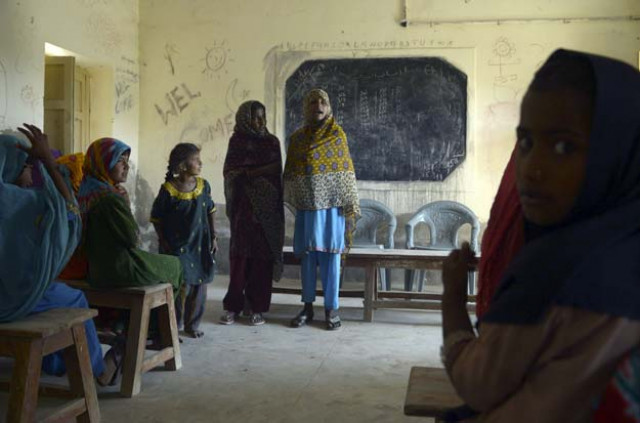Education in doldrums
According to a Unicef report, Sindh has approximately 40 per cent of its primary-school age children out of school

Considering the poor state of facilities in a significant proportion of government-run schools, the Sindh government needs to get its act together. PHOTO: AFP
Though private organisations continue to contribute resources to help alleviate the education crisis, the provincial government has greater influence over the state of education. Considering the poor state of facilities in a significant proportion of government-run schools, like lack of clean drinking water and toilets, absence of boundary walls in some cases, broken furniture and inadequate number of classrooms, the Sindh government needs to get its act together. In some cases, it has been reported that the 2010-11 floods caused considerable damage to the infrastructure of schools. But half a decade is ample time to rebuild. The education emergency is slipping out of control as unregulated and subpar private schools continue to be established and existing government schools become even more dilapidated and ignored. The Sindh government must act now. Drastic action is the only way to mitigate the education crisis which has already negatively impacted the futures of many children who have attempted to go through its system.
Published in The Express Tribune, May 13th, 2015.
Like Opinion & Editorial on Facebook, follow @ETOpEd on Twitter to receive all updates on all our daily pieces.



















COMMENTS
Comments are moderated and generally will be posted if they are on-topic and not abusive.
For more information, please see our Comments FAQ